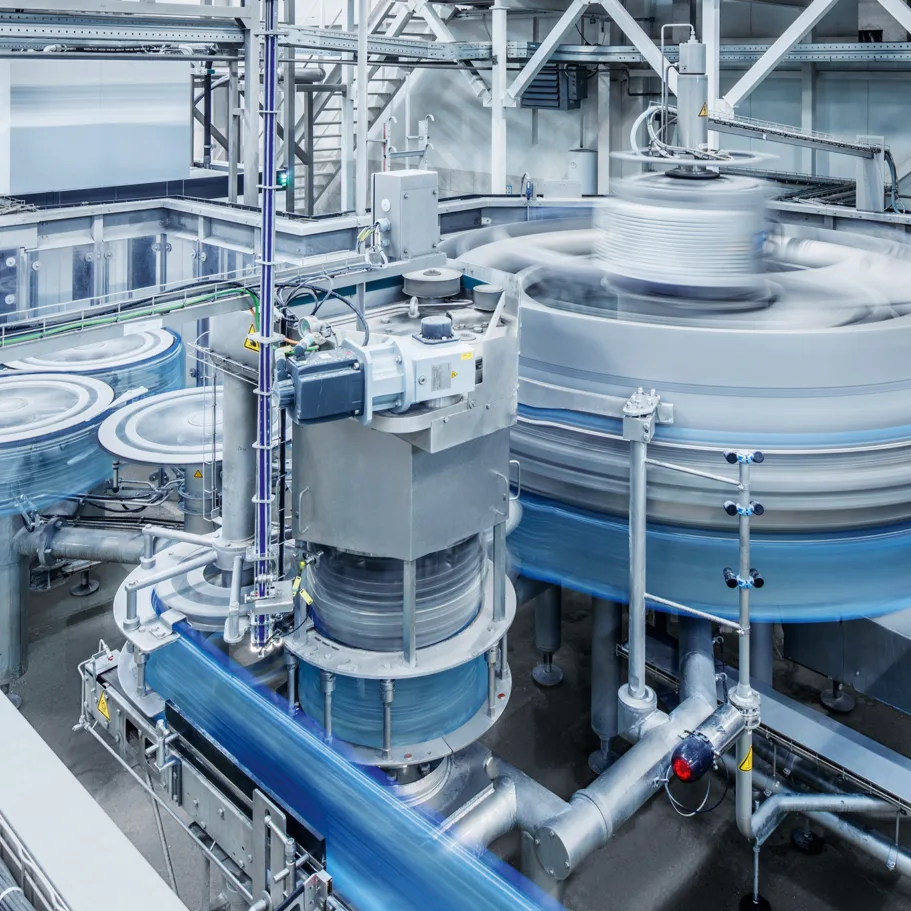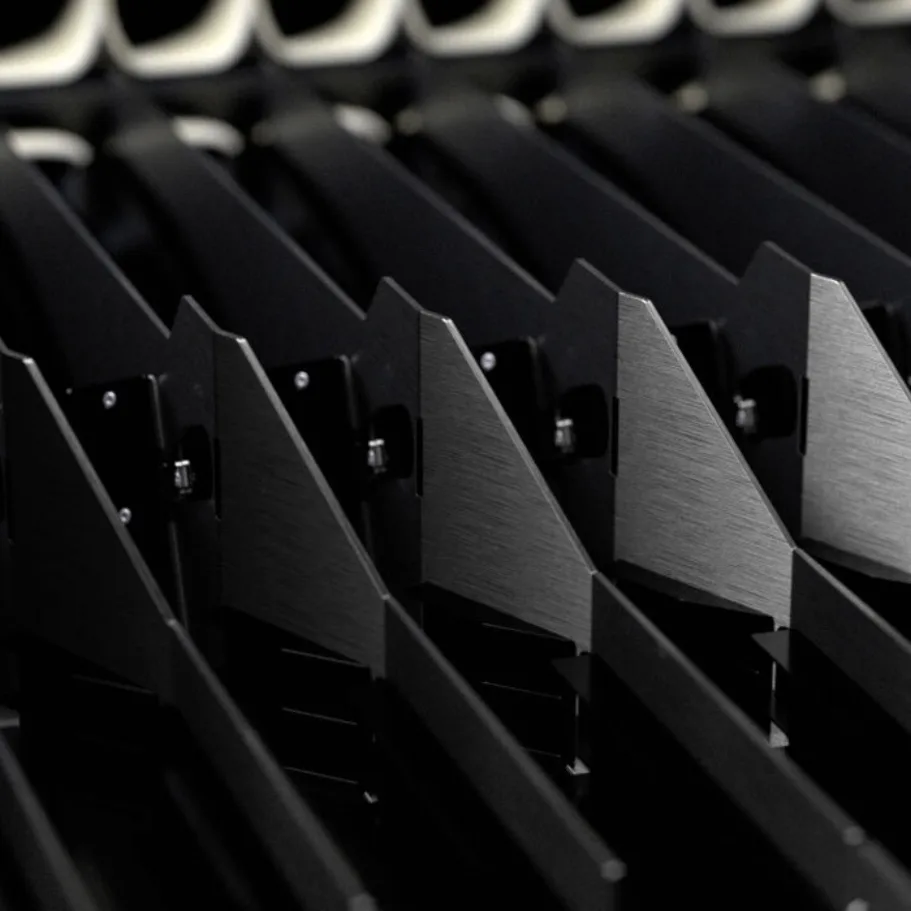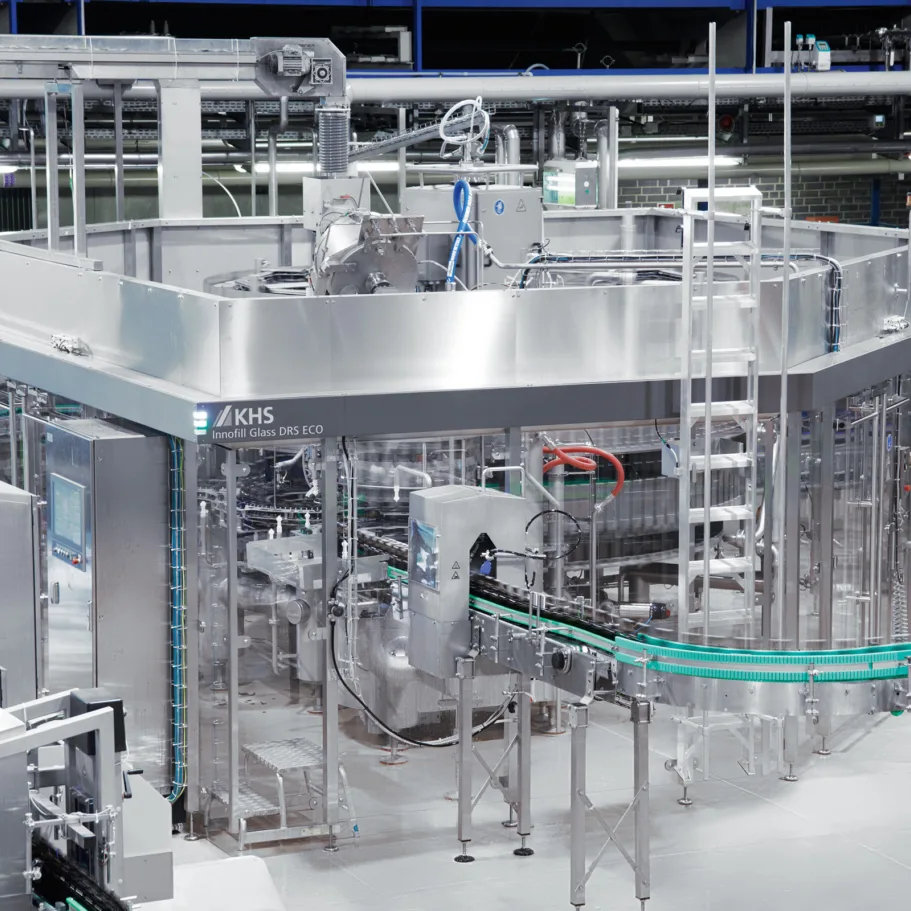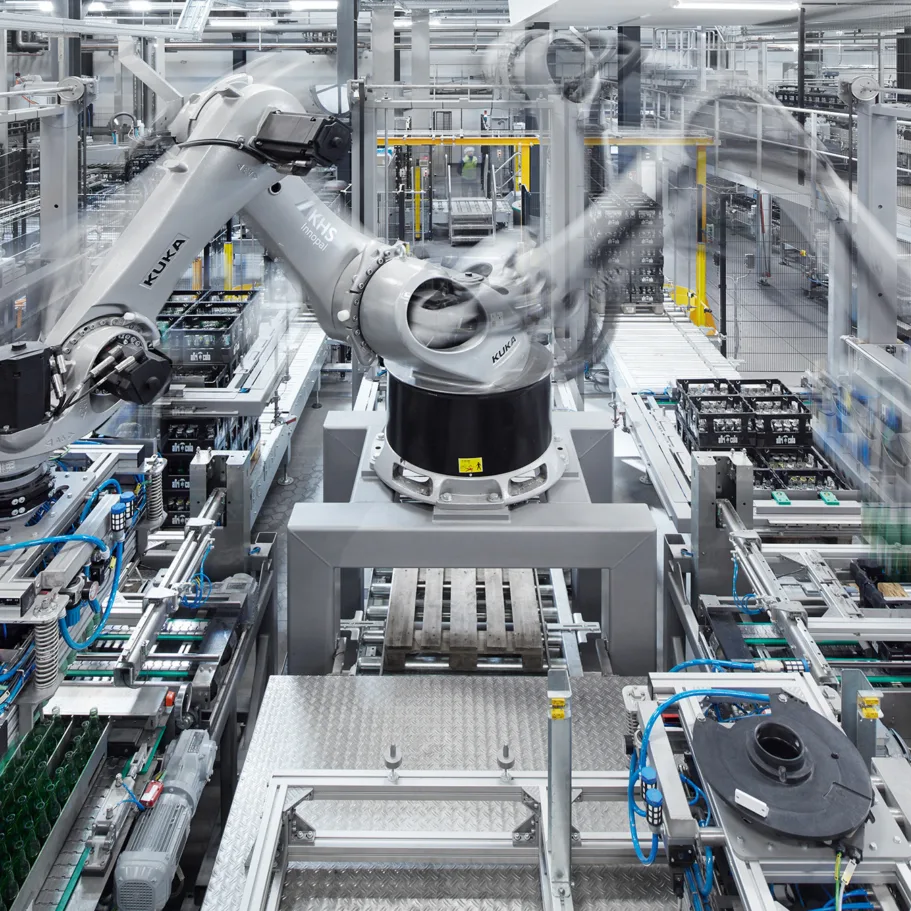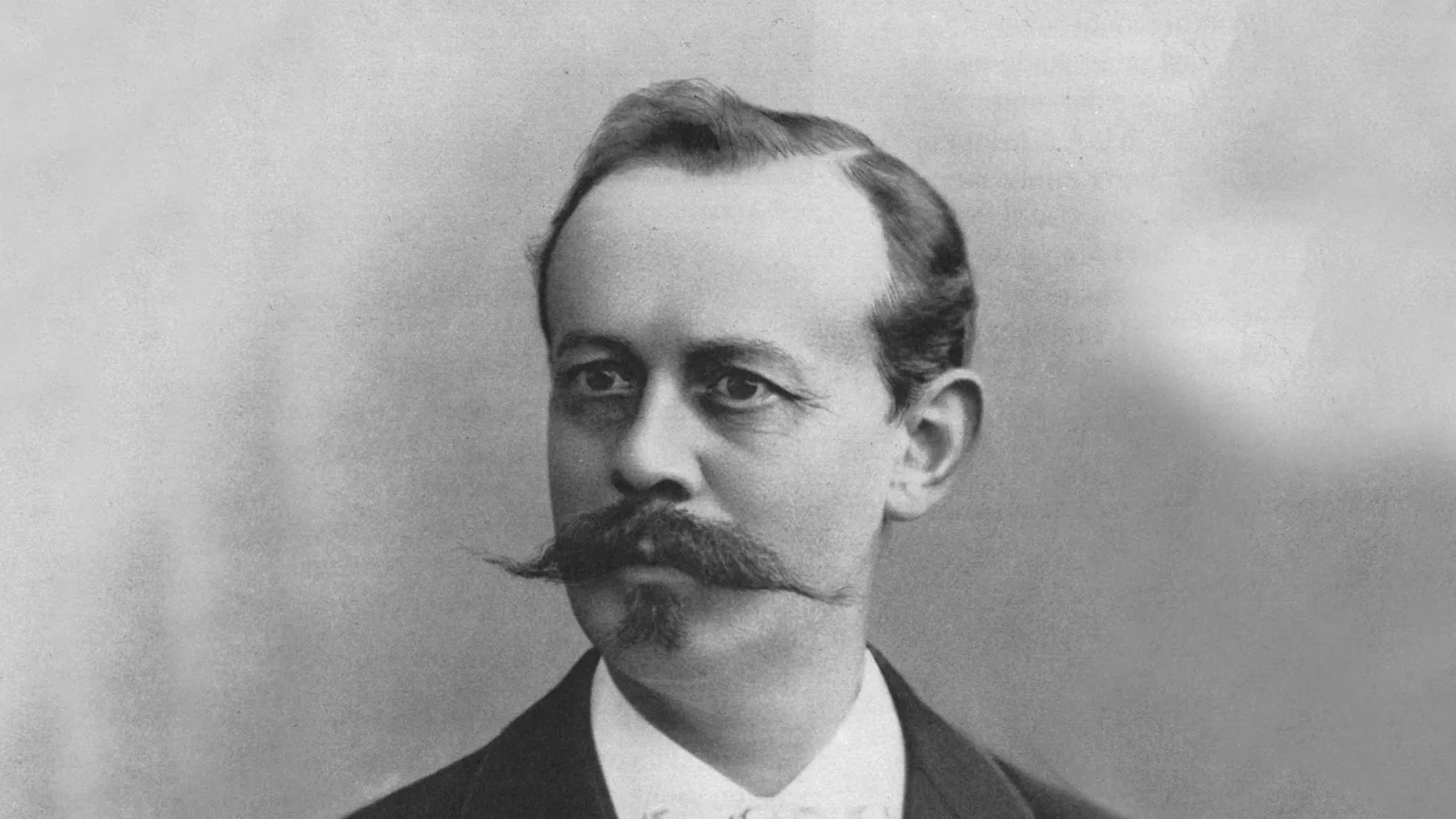
Anatomy of the barley corn
Lorenz Adalbert Enzinger (1849–1897) was an outstanding inventor and entrepreneur, one of the “grand primogenitors” of what is now KHS. His incredible success did not simply fall into his lap, however, but was the result of much hard work – and came at a high price.
The experts of the trade still herald him as the “Einstein of beer” and recognize that Lorenz Adalbert Enzinger fundamentally changed the brewing industry in the last quarter of the 19th century. In 1878 he invented the beer filter in Worms which just seven years later had been sold a thousand times over and is still based on the same principle today.
Born on April 22, 1849, in Wasserburg am Inn Lorenz Adalbert Enzinger literally inherited his passion for beer from his father, brewer Johann Baptist Enzinger. Before he started his period of training at his father’s brewery, he first attended the vocational school in Munich. Following his apprenticeship in Wasserburg and after studying at one of Germany’s very first technical colleges in Augsburg, he set out for Worms which was then something of a beer metropolis with about a dozen breweries and two designated brewers’ schools. One of these two institutes of further education was the internationally acclaimed school of brewing run by Conrad Schneider, an esteemed pioneer in his field, who soon made Enzinger his assistant.
With the invention of the beer filter Lorenz Adalbert Enzinger revolutionized beer culture. For the first time, using the filter it was possible to effectively filter haze substances out of beer, thus extending its shelf life.
Enzinger was now fully immersed in the world of beer and the production thereof. He published a scientific book entitled “Die Anatomie des Gerstenkorns und die Vorgänge beim Wachstumsprozess” (the anatomy of the barley corn and the sequences of the growth process). He spent a lot of time working with his microscope, intensely studying the barley corn to find out why it caused hazing. He found out that this adverse change could be prevented by filtering beer using paper of different strengths and structures. In an experimental brewery he himself planned he performed the relevant trials which proved so successful that on June 4, 1878, he registered his beer filter with the Imperial Patent Office in Berlin. Enzinger approached various brewery experts in the region and began to sell his first filters. In 1879 he then founded his own company and published his first catalog.
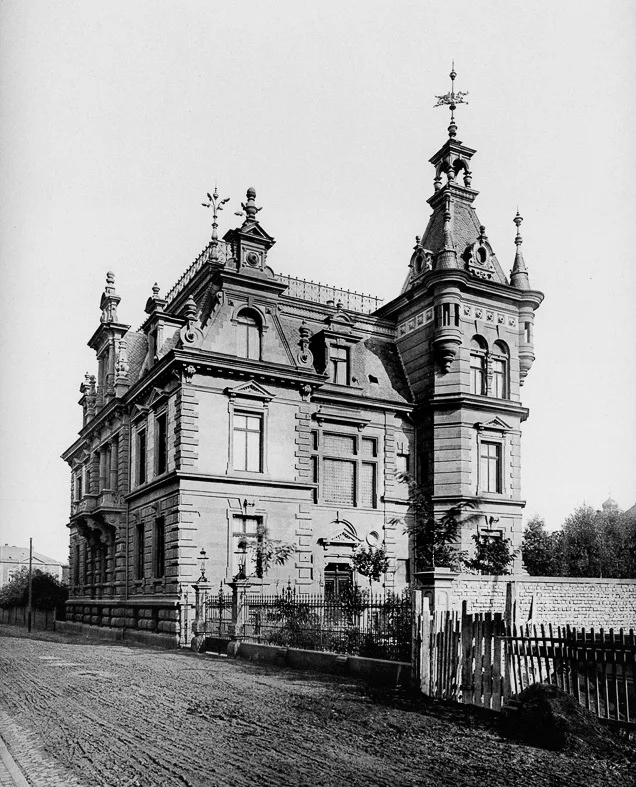
In the mid-1880s Enzinger had himself a prestigious villa built featuring a wealth of sophisticated domestic engineering.
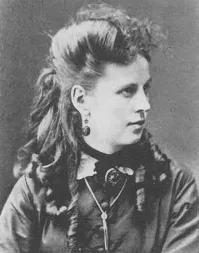
Enzinger’s wife and business partner Minna died in 1893 as a result of the exertions of the visit to the World’s Fair in Chicago.
Enzinger’s huge economic success was not only brought about by the innovative strength of his inventions but also by the persistent presentation of his products at exhibitions and in the trade press.
Celebrated inventor
He persistently presented his beer filter but also his first isobarometric barrel and bottle filler at exhibitions, for example during the Brewers’ Meeting at the Munich Glaspalast in July 1880. His invention was such a pioneering achievement that the trade press took notice and celebrated his innovation. “A device which makes impeccably clear beer, that is which can do more than some brewers can: should the same not be heralded as a marvel and must it not be welcomed as a salvation by – sadly – so many?” asked the “Allgemeine Zeitschrift für Bierbrauerei und Malzfabrikation”, a brewing and malting journal.
On September 1, 1886, Enzinger delivered his thousandth filter amid much celebration: 200 invited guests were driven on a special train from Worms to the specially erected stop very close to the factory in Pfeddersheim, just a few miles out of town. Here, they were shown around the festively decorated halls prior to the grand finale at 6 pm, when the aforementioned filter, adorned in wreaths, was driven past the rows of jubilant visitors on a horse and cart to loud cheers and thunderous applause.
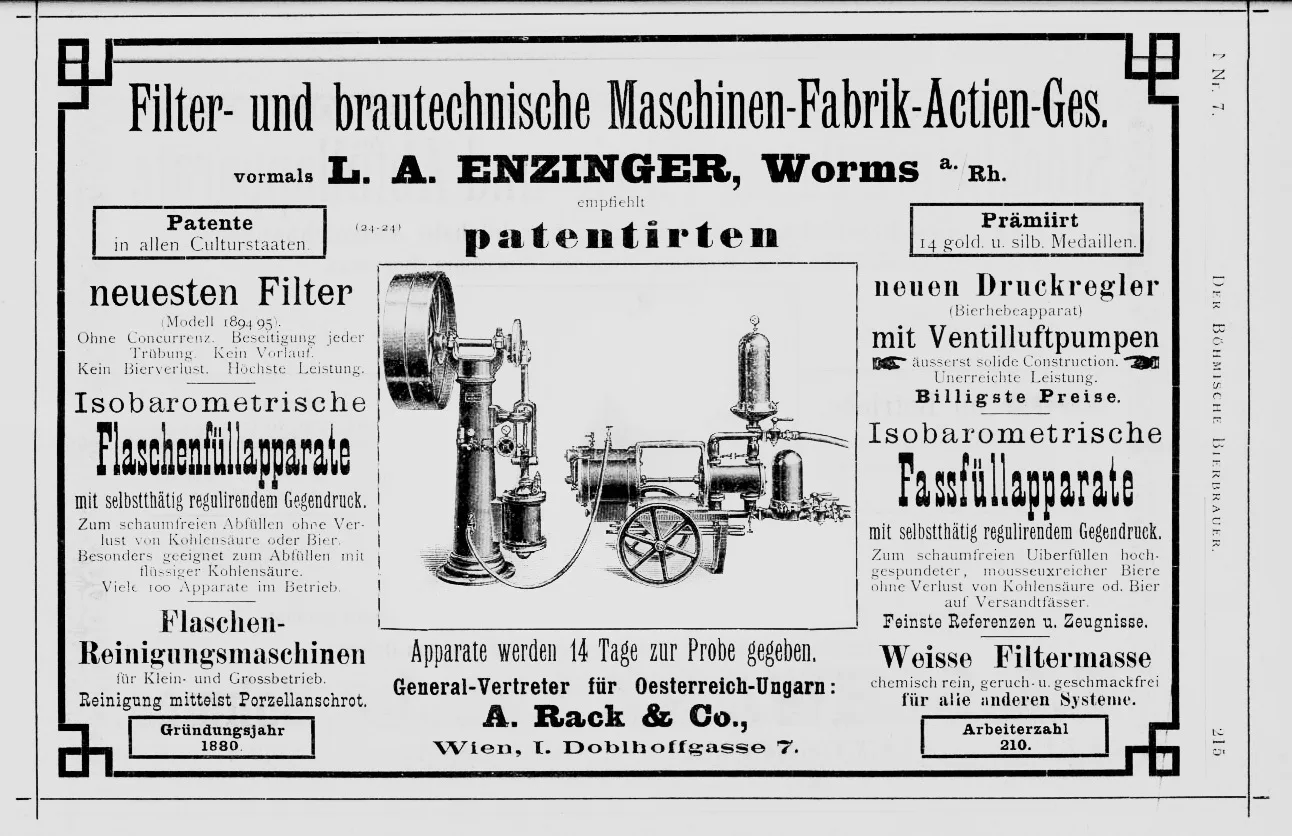
Effective marketing tools of the day included newspaper advertisements, such as this one in “Der Böhmische Bierbrauer” from April 1, 1898.
There was now no denying that Enzinger had finally made it. His success was visibly manifested not just in his expansive production facilities amidst fields of green but also in the bourgeois, neo-baroque villa he had Wilhelm Manchot from Mannheim, a scholar of the famous German architect Gottfried Semper, build him in a high-class suburb of Worms. Not only its splendid facade was impressive; his new home boasted all kinds of exceptional and sophisticated domestic engineering. As there was no central water or communal electricity supply in Worms in 1886, the year Enzinger’s villa was completed, the complex included a water tower and a machine building with two steam engines. When Worms’ municipal festival hall was opened in the presence of Emperor Wilhelm II in 1889, Enzinger loaned his private electricity generating system to provide suitable illumination for the grand proceedings.
First competitors
In the following years Enzinger extended his range of products and continued to develop his devices without making any changes to the basic principle.When the first mass filter was launched to market, however, whose filter medium could be washed and reused after application – as opposed to the paper deployed by Enzinger – the Worms entrepreneur found himself facing serious competition. Without much further ado he promptly produced a mass filter of his own in 1892, the design of which was decidedly different from that of his competitor. Enzinger’s filter was well received by brewers – and he was ahead of the game once again.
After the death of Enzinger the company was turned into a corporation under the management of Enzinger’s son Karl and forthwith called the Filter- und Brautechnische Maschinenfabrik Actien-Ges. vormals L. A. Enzinger.
In the meantime Enzinger’s eldest son Karl had completed his schooling and joined the company. He took on the task of preparing the company’s visit to the World’s Fair in Chicago in 1893. Karl Enzinger supervised the production and assembly of the exhibition machines from the new mass filter in various sizes to filter mass washing machines, air pressure regulators and isobarometric barrel and bottle fillers to bottle washing machines. The fair in the USA was a genuine roaring success: Enzinger was awarded no less than four top prizes and his attendance at the exposition earned the company recognition and respect worldwide.
High price
Lorenz Adalbert Enzinger was to pay a high price for his rise to fame, however: his wife Minna, a niece of his mentor Conrad Schneider who was also instrumental in the triumph in America, suffered a heart attack following the exertions of the passage across the Atlantic and died at the age of just 39. Enzinger not only lost the love of his life but also a committed partner, one of whose jobs was to market their products through newspaper advertisements and who held full power of attorney when he was away on business.
Enzinger’s own health was also not perfect: during the many years of commissioning filters and filling systems in cold cellars he had contracted an incurable lung disease. Lorenz Adalbert Enzinger died on May 5, 1897. He was just 48.
